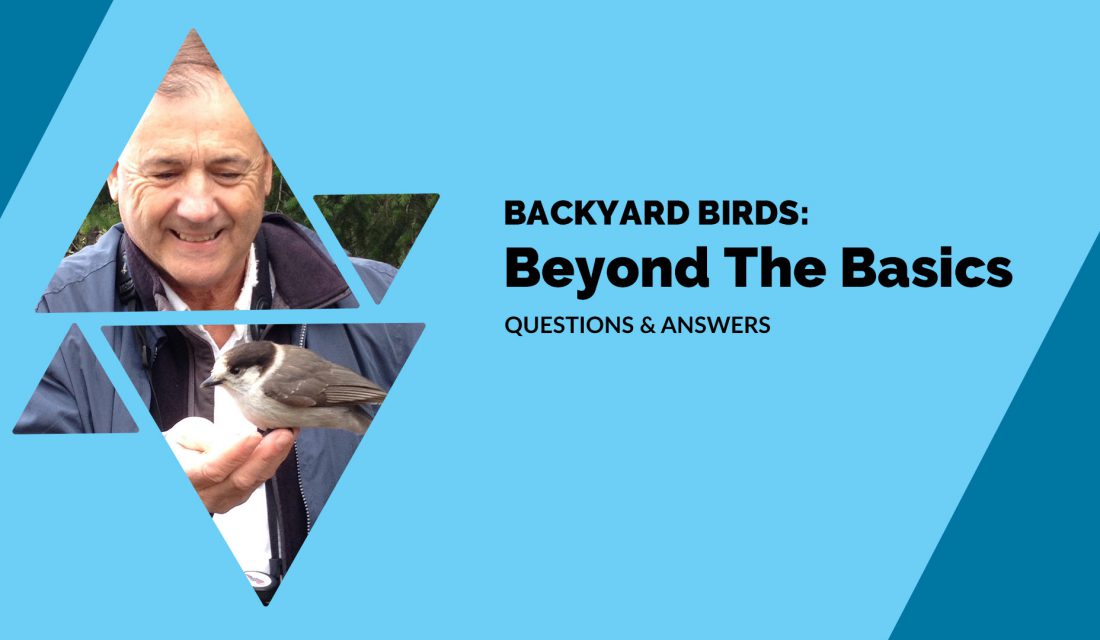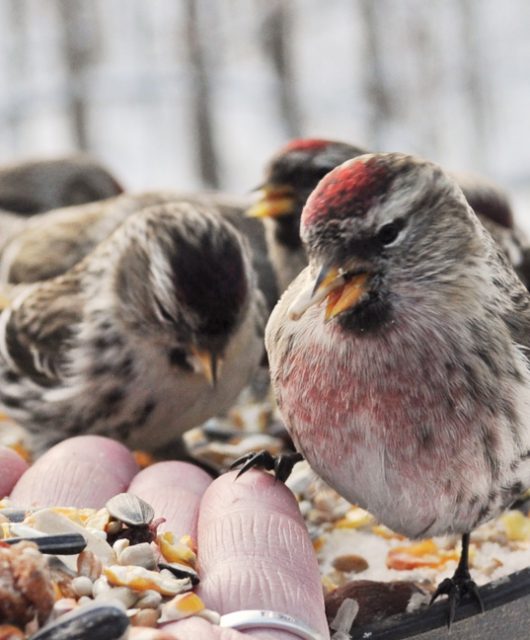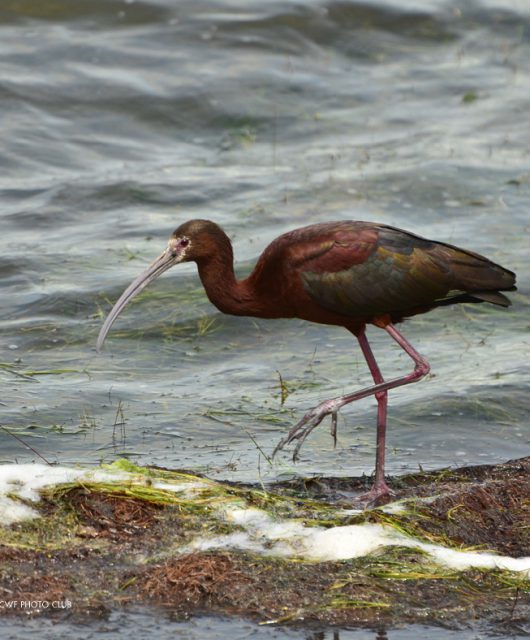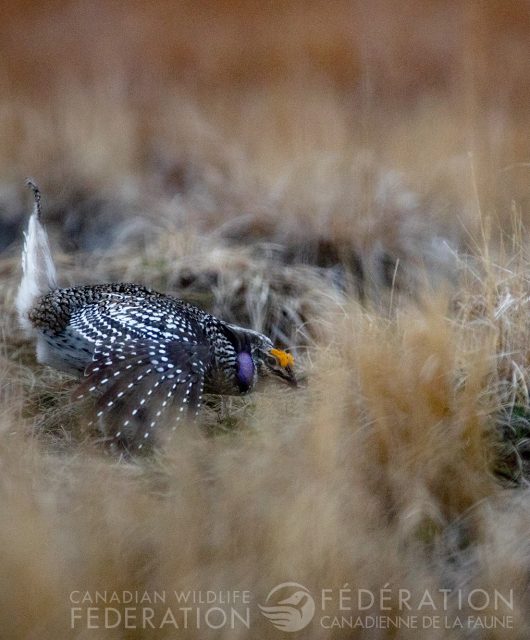Boy, did you have a lot of questions about birds!
Since the previous post “Q&A With Avian Expert David Bird” was so successful, we thought we’d include even more of your questions with David’s answers below.
Enjoy!
Did You Miss the Webinar?

Sadly, we were not allowed to record the webinar. But Dr. Bird very kindly offered to answer many of your questions we could not get to during the timeframe of the webinar.
Q: Do hummingbird feeders attract wasps to nest in your home’s eaves?
Bird: If your hummer feeders are attracting a lot of wasps, then one could assume that this extra food source might be an enhancement to wasps to build a nest in one’s eaves. You can buy hummingbird feeders that do not allow wasps to gain access to the sugar water. To be honest, if one’s eaves are conducive to nest-building, they would likely build one whether one feeds hummingbirds or not.
Q: Is it common to see only new species for only one day? I get so excited when I spot a new bird but they never stick around.
Bird: As Rodger Tory Peterson, the guru for bird-watching, once said, “Birds have wings and thus, they can go anywhere they damn well please!” Usually though, when a “new” bird shows up, they generally hang around for a few days at least, unless they don’t like the food or the safety in their surroundings.
Q: I’ve noticed a severe decline in winter feeding, including Cardinals. If they aren’t migrating, where are they going?
Bird: It is really hard to say why birds are there one winter and not the next. It could be one or more of many reasons: changes in the food supply, the appearance of a predator in the area, birds dying for one reason or another and not being replaced right away.
Q: I’ve put out goldfinch feeders with Nyjer seed, but have yet to see a goldfinch. Is there something else I need to include in my landscape?
Bird: I guess that it depends on where you live. Take a look at the range map of the American Goldfinch on the internet to ensure that they are found in your area. It really depends on the rest of the habitat around your property. The birds do have to find your feeders!
Q: What can I offer as an alternative to paint chips and mortar?
Bird: A great question! Pigeons, doves and many other birds must swallow grit in the form of small stones, sand and similar materials in order to break down seed coats and other foods before digestion can take place. Grit is often in short supply during the winter, being either covered with snow or frozen to the ground You can help winter birds by providing pet bird gravel, sand and oyster shell (available at garden supply shops) in snow-free locations. It is best to keep grit separated from food, as it will be used slowly and may become contaminated with feces if it lies out too long.
Calcium is especially important as winter turns to spring, since female birds utilize this mineral to produce egg shells. However, insects, the main source of calcium for many species, are often scarce at this time of the year. You can also supply calcium by mixing oyster shell and ground-up eggshells into your wild bird food.
Q: How do I deter rats and attract birds?
Bird: See my response on mice. Much of what I said applies also to rats. Which rats are you referring to: Norway Rats or Wood Rats? You definitely do not want the former species in and around your home. I see Wood Rats, a more harmless species, occasionally in my yard; one lived in my BBQ for a while. While I would love to attract California Quail to my yard with chicken feed in a ground feeder, my wife nixed the idea because of the possibility of attracting Wood Rats.
Q: I live in the Niagara Region and I have noticed we see a few Blue Jays and Cardinals in the winter. I would like to feed them suet in the winter. Since Cardinals like to perch, I would like to purchase a suet feeder with a perch and roof to protect the suet. Any recommendations for a feeder? I can’t seem to locate where to purchase a cage feeder with these features.
Bird: Actually, Cardinals are generally ground feeders and would much rather dine on a platform feeder rather than a tube feeder with a perch. I am not sure that suet is the way to go for either of these species. You will be better off offering either sunflower seed (or safflower seed if you have squirrels in your area) for the Cardinals, and I have never met a Blue Jay that did not adore peanuts in the shell.
Q: I have Kingbirds in my area. They like to build nests on my house, which I do not like. If I provide them, will they use nest boxes? Or should I use deterrents? I do like them because they eat insects.
Bird: While Kingbirds have been known to use a vacant Bluebird or Tree Swallow box, provided they can get access, it is very rare. I could write a book on how to stop birds from nesting on one’s home, but every house is different. Not to leave you hanging, visit this site to see if there is something helpful for your home.
Q: This winter I put my Christmas spruce tree outside. I dried my rose hips, wrapped them in peanut butter and seeds and hung them on the tree. But nothing came. Can you explain?
Bird: Well, that is a hard one to explain, mainly because I do not know what else is attracting birds in your neighbourhood. Are there lots of outdoor cats in the neighbourhood? Do many of your neighbours feed the birds? Wish I could be more helpful to you.
Q: What about bird feeding at the cottage with raccoons and bears around?
Bird: A tough decision! Both animals are very smart, very persistent and will literally destroy your feeder(s) if they can reach them. You can indeed buy poles that are bear-proof (and by default, raccoon-proof). Your best bet is to locate a nature or bird store in your area and ask if they sell such things. I am sure that they are available on the internet.
Q: Will the Bald Eagle at the back of my farm come after my Sharp-shinned Hawk that lives around my windbreak at the front?
Bird: It would be highly unlikely for a Bald Eagle to catch a speedy, healthy Sharp-shinned Hawk. While the eagles are stronger, they are not as agile.





